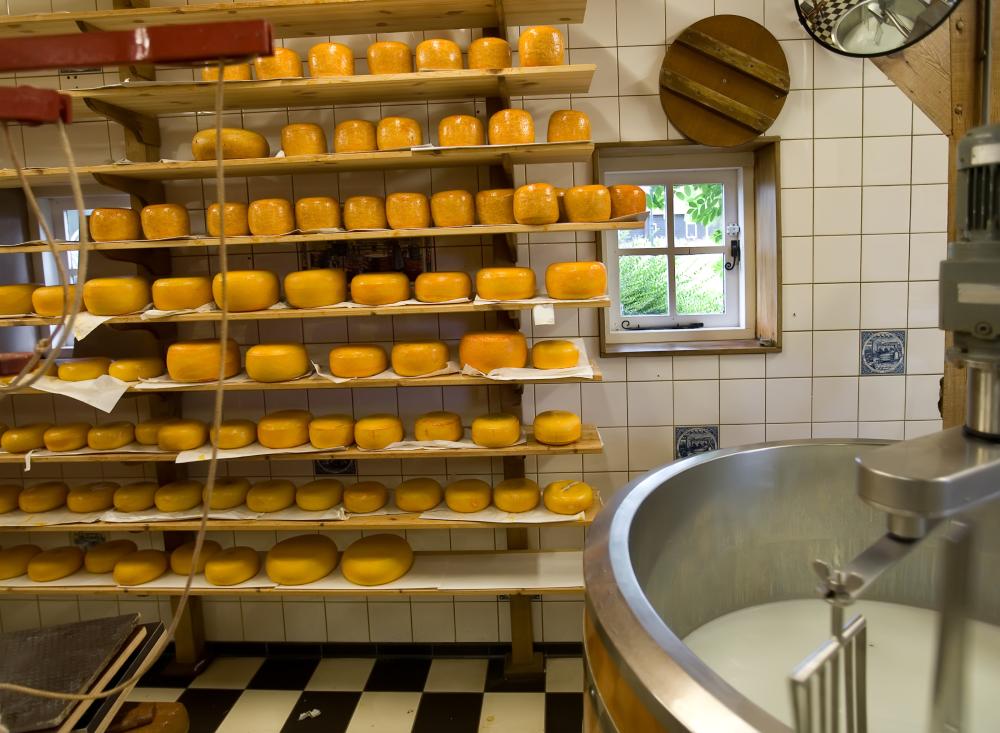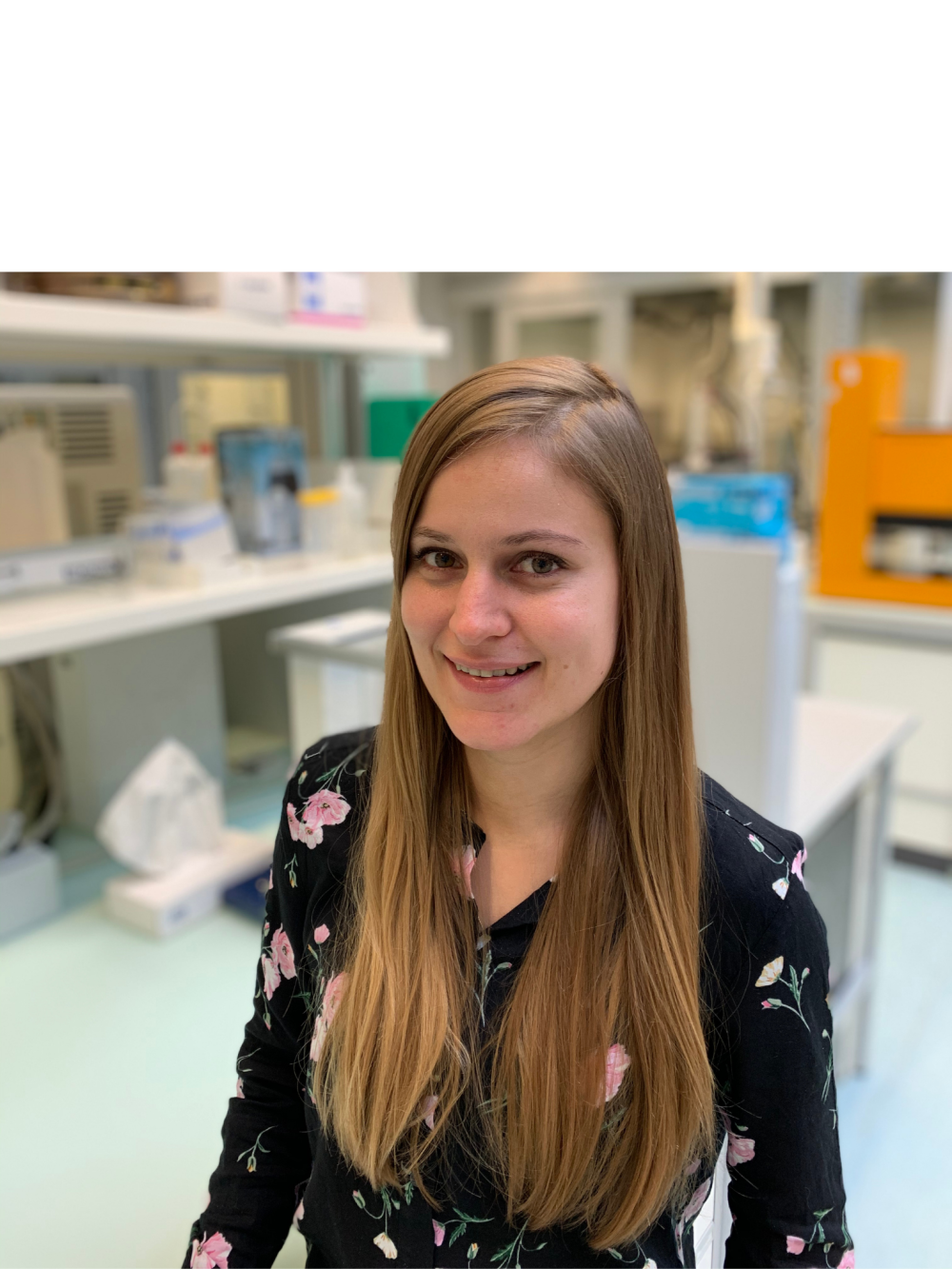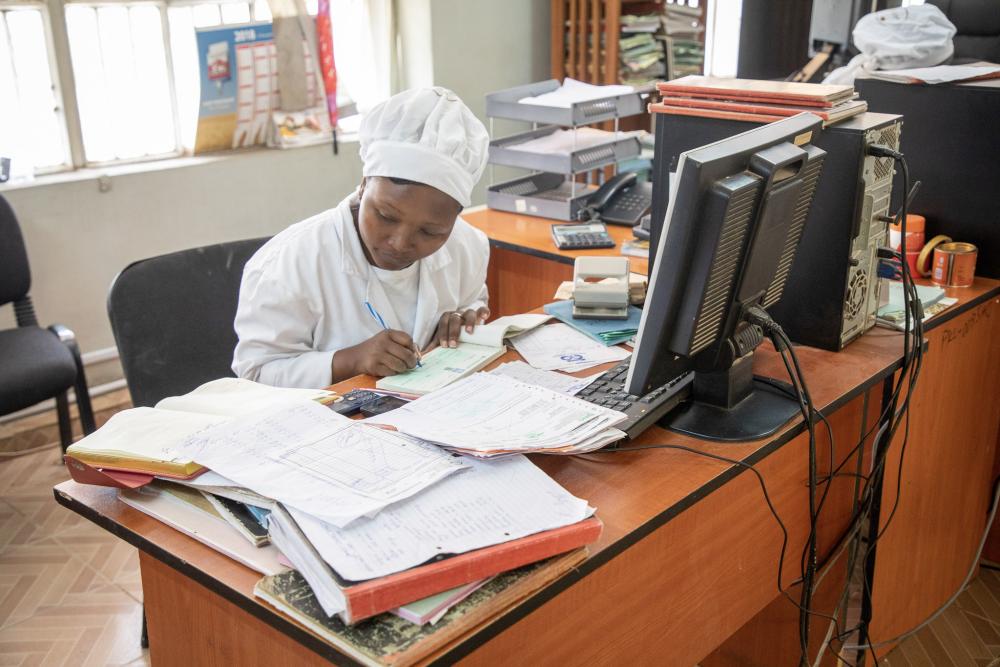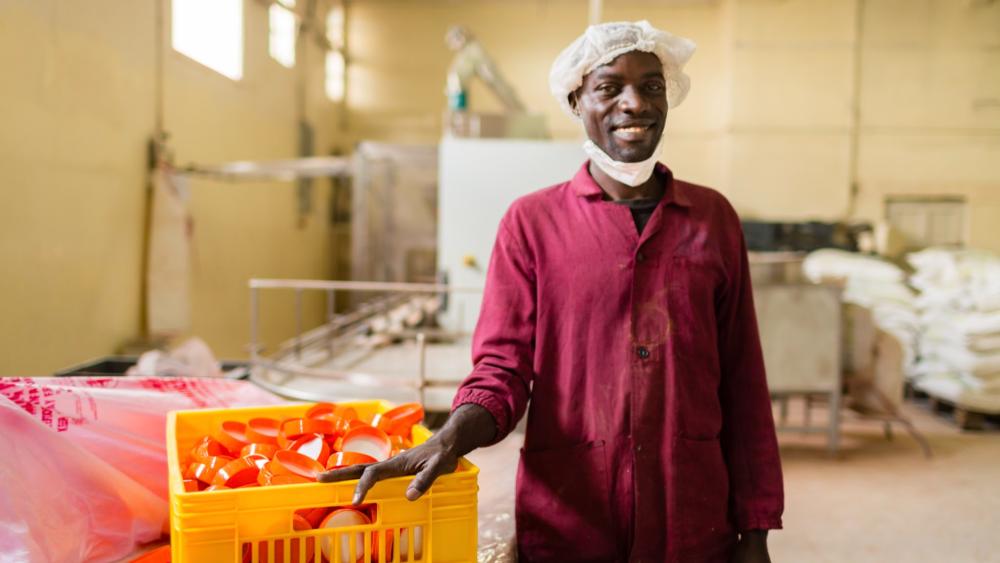
Mentorship that Matters
Even at the highest level, mentorship matters. From apprentices to CEOs, mentoring can make a huge difference in an individual, and company’s, trajectory. Over the past year, Bühler President and CEO of North America Andy Sharpe has been mentoring PFS client Managing Director Miraj Shah. Miraj runs Crofts Limited in Kenya, one of the largest avocado oil producers in Africa. “The mentorship has been great,” said Andy. “We’ve had plenty of great discussions from culture to business growth.” The PFS Mentorship Program is a great opportunity to connect with food industry leaders one on one and support African entrepreneurs. To date, the PFS Mentorship Program has connected over 150 individuals and supported both mentors and mentees in reaching their personal and professional goals.

Got Cheese?
Established in 2003, Shambani Milk is a dairy processing company located in Morogoro, Tanzania. Shambani aggregates milk from roughly 250 smallholder dairy farmers and produces several products, including fresh pasteurized milk, sour milk, and flavored yogurt. The company has partnered with Partners in Food Solutions (PFS), international development nonprofit TechnoServe and USAID for more than three years, working on a range of projects from marketing strategy review to HACCP program implementation, ISO certification, and new product development. To further diversify their product portfolio, Shambani Milk reached out to PFS and its network of expert volunteers for guidance on developing a new product – mozzarella cheese.
“Adding mozzarella to our product line is important to our business for several reasons,” said Shambani Co owner and Director of R&D Florent Nguma. “Cheese is one of the highest value dairy products with a good profit margin and that is what our company wants to focus on,” he said. We’ve also seen an increase in demand for cheese at hotels and restaurants due to the growth in local tourism.” To support Shambani Milk with this new endeavor, PFS assembled a team of product development experts including cheese expert Gert van den Hoven from DSM.
Growing up on a milk farm and spending several decades working with cheese in various capacities, Gert was the perfect fit to support Shambani Milk on this project. “In my role at DSM, I help cheese factories create the optimal recipes for their cheese brands, optimize the cheese process, and ensure it is sustainable and cost effective,” he said. “I found it easy and enjoyable to contribute my experience and guide Shambani forward in their mozzarella cheese journey. For me it was a small effort, but for them it made a world of difference.”
Most of Gert’s previous cheese experience involved working with European cheese companies. This project with Shambani was his first cheese development project in Tanzania. The biggest difference for Gert was the scale and equipment available. “The differences in infrastructure required parts of the mozzarella cheese making process to be manual at Shambani,” he said. “This required a different approach and more practical solutions.” Gert also had to work with a more variable milk source than he’s used to. “The varying milk quality proved to be somewhat challenging, but everyone on the team was eager to learn and was motivated to address quality gaps and improve production quality. This made the project super fun and gave me motivation to keep supporting the client.”
Over the past year, the team has conducted several tests including taste, smell, texture, appearance, pH, and shelf life. “We’re very grateful for Gert’s support on this project,” said Florent. “We’ve learned so much from his vast experience and have been implementing his suggestions throughout the project.” Shambani and the team are still working on perfecting the recipe and are excited to share this product with the community in the near future.

Q+A with Bühler Project Manager Valerie Brunner
Please share a little about yourself and your role at Bühler.
My name is Valerie Brunner and I am a project manager of lab analytics at Bühler with a food science background.
What is your main motivation for volunteering with PFS?
I like volunteering with PFS because it’s a great opportunity to help improve the global food processing value chain and provide safe and nutritional food for everyone.
What has been your favorite part of volunteering with PFS so far?
My favorite part of volunteering is working with my other team members. The exchange between the volunteers, the PFS staff and the different companies, cultures, and countries is really enriching.
You’re supporting a lab set up project in Kenya. How is your volunteer work different from your Bühler lab work?
In my day job at Bühler, we have the opportunity to work in a fully equipped and functioning laboratory for all kinds of analyses. Compared to the PFS project, the client only had minimal equipment available. Therefore, establishing a full understanding of what the client needed regarding their processes and products was critical.
Did you face any challenges during your lab set up project? If so, how did you overcome them?
The greatest challenge for me was overcoming the differences between our labs and understanding that the client didn’t have access to certain items that I take for granted at my lab. Volunteering with PFS was a new experience for me and it forced me to think outside the box and come up with unique solutions that were valuable to the client based on their infrastructure.

Bühler Volunteers Provide Virtual Trainings to Improve Health and Food Safety in Nigeria
Fastizers Food and Confectionary is one of Nigeria’s fastest growing consumer goods companies and is known for their premium short-bread cookies, biscuits and other sweets. The company began by making sweets out of a home kitchen ten years ago and now distributes their products across the country to 26 different states and counting. Fastizers joined Partners in Food Solutions in 2020 and has since completed over nine projects including product development, equipment installation, and recently an occupational health and safety project. Bühler’s Quality, Health, and Safety Manager Alan Galloway worked with Fastizers to develop their health and safety manual.
Alan has five years of experience as a quality, health and safety manager at Bühler. “I really enjoy my role and love changing people’s perception of health and safety,” he said. “I believe by better educating people around the world on health and safety (H&S), we can all achieve something great.” Working with his Bühler colleagues Lindewe Segalwe and Sorana Ionita, Alan and the team were able to learn about what health and safety means in Nigeria. Alan said one of the most interesting parts of the project was discovering how another country handles their health and safety, and what laws and regulations they have in place. “Sometimes we had to ask some difficult questions,” Alan said, “but overall it helped us create a better health and safety environment at Fastizers.”
Balogun Ismail Sola, a quality control analyst and health and safety officer at Fastizers, worked with the Bühler volunteer team to develop a H&S manual for the company. “It was quite an interesting and fulfilling experience working with Alan, Lindiwe, and Sorana,” he said. Throughout the project, Alan and the team provided technical support, virtual trainings, and helped identify gaps in Fastizers H&S plans where they could improve. Using learnings from the project, Balogun was able to develop a new health and safety approach that the company will implement moving forward. “For example,” said Balogun, “we will start doing continuous risk assessments and policy statements in occupational, health and safety.” The H&S manual will help the Fastizers align on all aspects of safety across the company so they can better control hazards and risks. Balogun said his favorite part of the project was the virtual training that Alan facilitated himself because it was incredibly helpful and insightful. He will take those important lessons with him.

Virtual Volunteerism is an Inclusive Solution to Strengthen Community and Company Resilience
There are an estimated one billion volunteers in the world. They play a crucial role in building resilient communities and helping those in need. However, the COVID-19 pandemic has had a significant impact in bringing that number down. For workplace volunteering programs, it’s no surprise that in-person volunteerism dropped as social distancing requirements and remote work began almost overnight.
Virtual volunteerism is a great way to continue and even grow a culture of giving back, despite in-person limitations. Our organization, Partners in Food Solutions (PFS), is a consortium of seven world-class companies – General Mills, Cargill, DSM, Bühler, The Hershey Company, Ardent Mills, and J.M. Smucker -who have been supporting remote volunteering for 13 years,. Employees of our consortium partners share their expertise remotely with entrepreneurial food companies in Africa to help strengthen their businesses and improve local food security. Over the years, we’ve learned to overcome challenges around technology, how to engage a remote workforce, and more. In 2021, we supported 616 volunteers, accounting for over 17,000 volunteer hours. Each one of these volunteers represents a positive impact on a client, a community, a country and a continent. The passion for food security, commitment to help, and know-how that is shared is truly treasured by the clients we serve.
The Personal Case for Virtual Volunteering
Take for example Natalia Faiden and Tomomi Fujimaru, food safety and quality professionals from General Mills. They stepped up and volunteered to share their knowledge with Forest Fruits, one of the leading producers of organic honey and beeswax in Lusaka, Zambia. Forest Fruits sources honey from over 7000 traditional beekeepers that utilize sustainable farming practices.
Forest Fruits wanted to become HACCP certified (an international standard defining the requirements for effective control of food safety) but had challenges passing their previous certification audit due to lack of in-house expertise. Natalia and Tomomi volunteered their expertise and time with Forest Fruits to achieve certification. “Volunteering enables me to take advantage of the resources and knowledge at General Mills to support and develop the food industry where it is most needed, while getting to know other cultures and learning from them, “ said Natalia. “Without a doubt, my favorite part of this project was seeing Forest Fruit’s transformation and helping them receive the certification.” That certification will help the company grow, maintain high quality and safety standards, and expand their market reach.
The Business Case for Virtual Volunteering
Both employers and employees benefit from supporting a culture that facilitates volunteerism and meaningful connection. In addition to the high personal satisfaction that comes with volunteering, 68 percent of PFS volunteers surveyed said that they have gained new or improved skills through volunteering with us. Additional research also reinforces the importance of employee practices like volunteerism that “goes beyond company walls.” According to research these organizations are 2.2 times more likely to exceed financial targets, 2.8 times more likely to adapt well to change and more than three times more likely to retain employees and reduce absenteeism and health insurance claims.
The Secrets to a Successful Program
Keys to a successful knowledge-transfer volunteering program like ours includes a place where the specific expertise of your employees is needed and designing a program that has specifically designed projects that volunteers and clients can engage in virtually. At PFS we only work on projects that a client asks for and prioritizes. In effect, they “pull” the expertise from us, we don’t “push” them into prescribed generic solutions. Additionally, engagements should be clearly structured from the beginning using well-scoped project charters that include transparent and realistic timelines, objectives, and deliverables. We spend time setting expectations with our volunteers so they are prepared to address these unique challenges in resource constrained environments.
We’re happy to share additional insights on volunteering, including our findings on implementing successful remote volunteering programs. Please see our resource: Building a Skills Based Remote Volunteering Program.
____
Partners in Food Solutions, a consortium of leading global food companies – General Mills, Cargill, Royal DSM, Bühler, The Hershey Company, Ardent Mills and The J.M. Smucker Company – is working to strengthen food security, improve nutrition and increase economic development across Africa by expanding and increasing the competitiveness of the food processing sector. We link corporate volunteers from our world-class corporate partners, who share their expertise with promising entrepreneurs in eleven African countries.